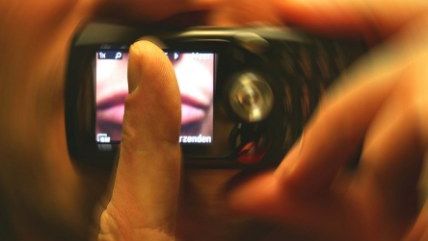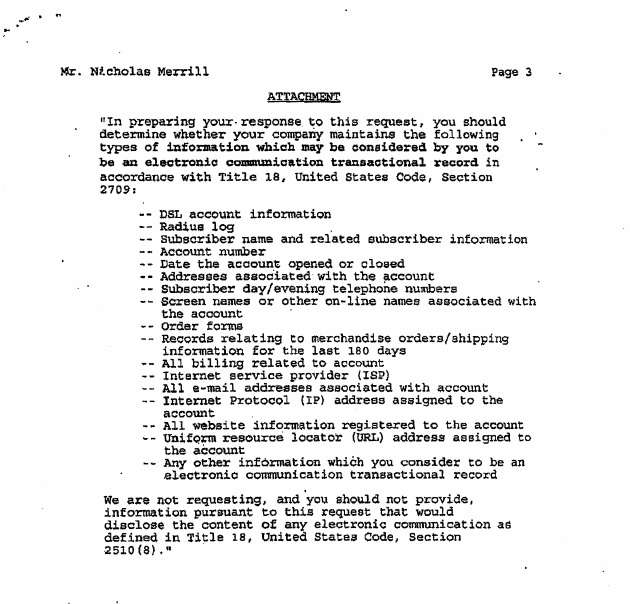See for Yourself for the First Time What User Data the FBI Demanded in a National Security Letter
Gag order lifted in decades-old case fought by small Internet provider.

It has taken more than a decade but transparency has finally won. As of today, we can see, at least in one case, what information the FBI demanded an online company provide to them—without a warrant and with a permanent gag order—about individuals as part of the war on terror.
Nicholas Merrill, the former owner and operator of New York-based Calyx Internet Access, received in 2004 what is called a National Security Letter (NSL), a demand from the FBI that he provide information about his company's users to the FBI and to keep his mouth shut, with the possibility of prosecution if he failed to keep his secret.
Merrill refused to provide the information and fought the gag order. With the assistance of the American Civil Liberties Union and Yale law students, he has finally, as 2015 comes to an end, won. Today he has revealed an unredacted list of demanded information that was included in the NSL. Are you ready for the information the FBI has been fighting for so long to keep secret? Here it is:

At this point, I doubt anybody would be surprised at what is on this list. Given how much the government has been fighting to keep this gag order, we should be surprised that it isn't even more intrusive than it already appears to be. It's nevertheless important for all Americans to know with certainty what sort of information the FBI has been demanding about them without any warrants, while keeping it a secret from its own citizens. It's also a reminder that the mass phone metadata collection that finally ended this past weekend was only one small piece of the surveillance machine.
It's also a reminder that even before Edward Snowden's leaks, there were people out there who had a good sense of how much information the government was trying to collect and had been fighting against it. Snowden's position and confirmation gave ammunition to these folks fighting to protect citizen transparency and force out some government transparency.
Read more about Merrill's fight here and more of the ACLU's history with the lawsuit here.


Show Comments (27)